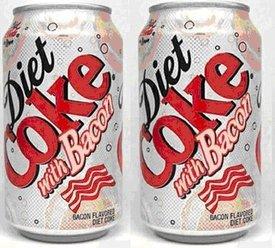Gary Taubes' newest book: The Case Against Sugar

camtosh
Posts: 898 Member
Here it is! next on my tbr list.
The Case Against Sugar https://www.amazon.com/Case-Against-Sugar-Gary-Taubes-ebook/dp/B01DRXCPJ0?SubscriptionId=AKIAILSHYYTFIVPWUY6Q&tag=duckduckgo-d-20&linkCode=xm2&camp=2025&creative=165953&creativeASIN=B01DRXCPJ0
The Case Against Sugar https://www.amazon.com/Case-Against-Sugar-Gary-Taubes-ebook/dp/B01DRXCPJ0?SubscriptionId=AKIAILSHYYTFIVPWUY6Q&tag=duckduckgo-d-20&linkCode=xm2&camp=2025&creative=165953&creativeASIN=B01DRXCPJ0
0
Replies
-
Bump. Going to request this in my library e-book list.0
-
Dr. Andreas Eenfeldt (Diet Doctor) published a chapter from the book. It's interesting reading!
https://www.dietdoctor.com/chapter-gary-taubes-case-sugar?utm_source=Diet+Doctor+Newsletter&utm_campaign=e2396bca17-Test&utm_medium=email&utm_term=0_41db911777-e2396bca17-4643442330 -
I have the audiobook on reserve at my library! Should be getting it in a few weeks!0
-
It's on my Kindle. I plan to start it later today.0
-
I think a calorie surplus is a necessary condition to gain fat (the energy has to come from somewhere) but not a sufficient condition. High insulin levels are also required. If not turned to fat, it is simply excreted.
I also think that a calorie deficit (daily total) is a sufficient condition to lose stored fat (the energy has to come from somewhere) but not a necessary condition and that there are other factors that can also contribute to fat loss.
Trying to have a deficit all the time to lose weight can be difficult if the metabolism slows down. Intermittently having a calorie deficit can keep the metabolism from slowing down and will still result in fat loss. Low carb diets will prevent fat accumulation. Intermittent cal deficits will reduce stored fat.
Imagine a body that isn't storing fat (low insulin levels) and that for a small period of time also has a cal deficit. During that time period, there will be fat lost to at least cover the energy deficit (the energy has to come from somewhere). Even if for the rest of the day there is a cal surplus but it is not stored, there will be a net fat loss even though the total calorie balance for the day might be a surplus. We need to look at the body as a non-linear dynamic continuous-time system where at every instance in time there is the possibility of losing or storing fat. Looking at whether we had a cal deficit over the whole day or not isn't the complete picture although if there was a cal deficit for the whole day, then there must have also been some periods of time where there was an instantaneous deficit and so fat is guaranteed to be lost in that case also (energy must come from somewhere). Also I believe some fat can be liberated without providing energy needs and is simply excreted (drugs to cause fat loss are one example, ACV would be in this category if it causes fat loss without an energy demand).
My thoughts (seems to unify the two schools of thought IMO).0
This discussion has been closed.




